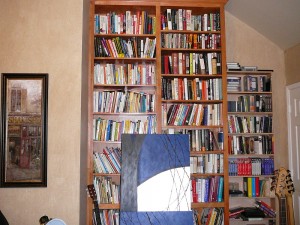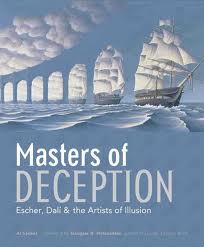The Anxiety-Complacency Connection
Fear is a market. To instill fear in people also has advantages. Not only in terms of drug use. Anxiety-driven people are easier to rule.
-Gerd Gogerenzer, Director Emeritus at the Max Planck Institute for Educational Research (Torsten Engelbrecht, Virus Mania, 2021)
I've been struggling to understand why it is that "The Blob" (or, as Michael Shellenberger and Matt Taibbi have termed it, the "censorship-industrial complex") tolerates and even seems to embrace so many flavors of woke dogma. Many of these woke position are outright oxymorons. Here are a few examples:
Carefully- gathered statistics (e.g., regarding police/race) are racist. And see here for many statistics that are inconvenient to the "abolish the police" insanity.
The Rule of Law is unfair, even racist/colonial/white supremacist etc.
Enlightenment Principles, including free speech, have become barriers to progress. See here for my articles on free speech.
Intelligence Tests (modern versions, which are highly predictive, as much as any other aspect of psychology, as well as very carefully designed to be race-neutral) are "racist."
Allowing high schoolers to take advanced math courses is racist. To preserve "equity" we must not allow such classes in high school.
I have written about all of these pronouncements at DI. I have also written repeatedly about immense pressures to conform to particular unwarranted, nonsensical and incurious narratives (see more than 250 of my articles that I have tagged as "narratives in media"), especially by corporate media outlets (which I am increasingly thinking of as government propaganda (often CIA) outlets--See Dick Russel's "Belly of the Beast" two-part article here and here. It is guaranteed to ruin your week--it can be painful when scales fall from your eyes).
My understanding from the sordid marriage between multinational corporations, U.S. foreign policy, government censorship and CIA dirty tricks is those with great economic and political power want more and more. They are never satisfied. But why allow woke ideology or even push it on us? What does that have to do with money or power? For that, consider the quote at the beginning of this article. When those around us utter palpable bullshit, it makes us anxious, even when we know that it is bullshit (see here). It makes us stay indoors. It causes us to avoid going to school board meetings. It keeps us from speaking up at the workplace or even at family dinners. We know woke ideology makes no sense, but most of us are willing to do a LOT of work to keep others from disliking us, even if they are saying things that we know, for sure, make no sense. Even if we know that they are saying and believing these things due to a vast censorship effort funded and operated by our own government. Even if we are certain that the corporate media consensus is a false consensus enabled by a highly sophisticated government apparatus.
Hearing nonsensical things being uttered around us by family, friends and co-workers who rely on corporate media makes us anxious. In the long run, this anxiety makes us more obedient.
This leaves us with two paths in life.
#1: Run out to get yet another COVID booster, then go home to watch Disney and eat ice cream;
#2: Keep speaking up. When you hear nonsense, call it nonsense. You might be worried that if you say what you believe out loud, people will yell at you and call you names. That will, indeed, happen. But remember, for every ignorant loud mouth in the room, you have become a hero to 9 anxious and silent people who are sitting on their hands. Your job is to inspire those people to be heroes next time.






